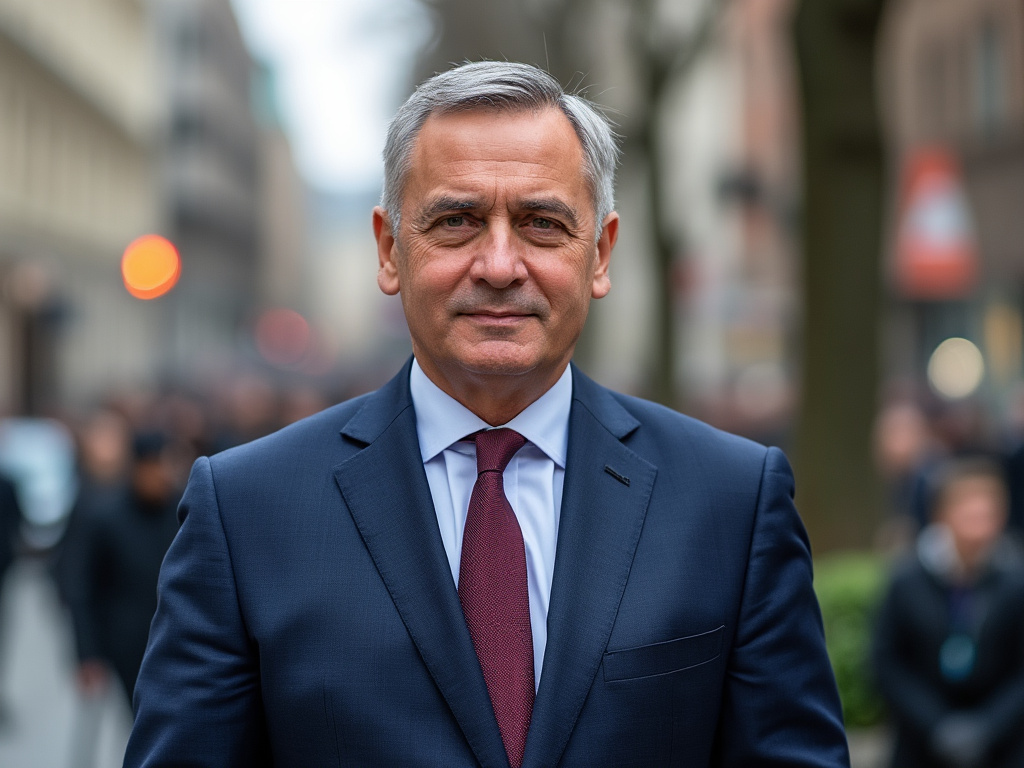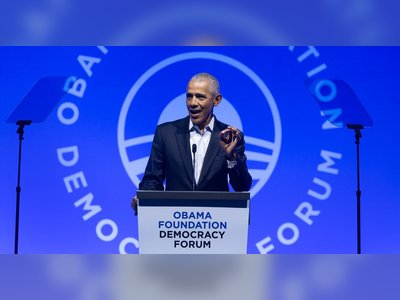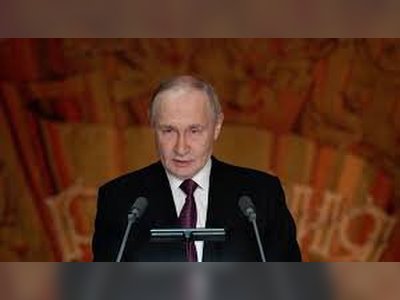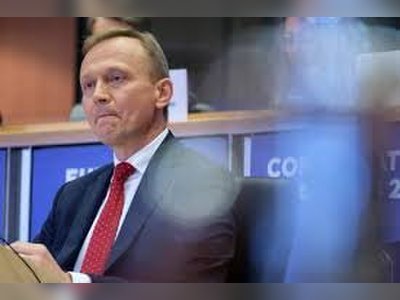
Government Restructure in Hungary: Viktor Orbán Redefines Ministerial Roles
Changes announced in Hungary's governmental structure as Prime Minister Viktor Orbán modifies responsibilities ahead of the 2026 election.
On February 24, 2025, a significant governmental decree was published in Hungary, marking changes to ministerial responsibilities by Prime Minister Viktor Orbán under government decree 21/2025. Rather than executing personnel changes, the restructuring has resulted in a reallocation of tasks among existing ministers.
Starting on February 25, 2025, Antal Rogán, head of the Prime Minister's Cabinet Office, will oversee a reduced portfolio, now managing only six areas.
Official sources within the government have indicated that this reorganization is not indicative of diminished trust in Rogán but rather a strategic move to prepare for the upcoming elections in 2026, focusing on his strengths in political coordination, government communication, national branding, leadership of civil national security services, civil intelligence activities, and professional oversight of classified data protection.
Critically, Rogán's previous oversight included significant areas such as digital citizenship, concessions, and toll collection, which feature prominently in national projects with substantial financial stakes.
Critics have raised concerns regarding his inclusion in sensitive projects given his recent inclusion in sanction lists, emphasizing the potential risks to crucial initiatives that could face complications or financial losses.
The recent decree does not elaborate on specific reasons for the changes, simply stating that the new governmental tasks necessitate a reassignment of responsibilities.
Effective the day after its announcement, the decree signals an immediate but complex transition, where ministers will spend the upcoming month acclimatizing to their redesigned roles and the associated challenges.
The principle behind these changes appears to revolve around reducing the involvement of politicians responsible for coordinating government work from engaging directly with specialized policy areas.
Alongside Rogán, major alterations affect Minister Gergely Gulyás, who will gain enhanced responsibilities in strategic issues, particularly in social policy coordination.
Rogán has also relinquished his film industry oversight.
Among others receiving new responsibilities, Csaba Lantos, Minister of Energy, will now manage e-governance and the Digital Citizenship Program, alongside oversight of the National Media and Infocommunications Authority and Digital Hungary Agency.
Lantos, however, reportedly expressed reservations about taking on technology-related tasks when he initially assumed his role.
Marton Nagy has emerged as a key figure within the government, now supervising tax affairs, budgetary matters, debt management, and the National Concession Bureau, which handles state-issued concessions for various sectors including gambling and waste management.
Former Minister of Technology and Industry László Palkovics has returned to governmental duties, now appointed as the government commissioner for artificial intelligence following a stint away from the administration.
His previous exit followed significant role changes in November 2022.
János Lázár has taken on additional responsibilities, including management of Hungary's toll system, which generates substantial daily revenue, alongside responsibilities for various construction projects tied to historical sites in Budapest and related sustainability measures.
Smaller adjustments included film-related duties for Balázs Hankó, the Minister for Culture and Innovation, alongside additional tasks for Tibor Navracsics in administrative and territorial development.
Notably, the management of the Hungarian Village Program was shifted from Gulyás to Agriculture Minister István Nagy off a public statement made regarding a new factory-building program.
While ministers are adapting to their reshuffled roles, discussions indicate that many were unprepared for these changes, raising questions about the deliberation behind such shifts.
Despite expectations of contest and lobbying among ministers for their respective domains, the internal governance atmosphere is reflective of a centralization of authority around Orbán, rendering individual lobbying efforts counterproductive.
The structural realignment was reportedly discussed among officials prior to the decree, though details remained elusive even at the deputy ministerial level during preparations.
As members of government navigate their newly defined areas of responsibility, the landscape remains poised for continued evolution as Hungary approaches the next electoral cycle.
Starting on February 25, 2025, Antal Rogán, head of the Prime Minister's Cabinet Office, will oversee a reduced portfolio, now managing only six areas.
Official sources within the government have indicated that this reorganization is not indicative of diminished trust in Rogán but rather a strategic move to prepare for the upcoming elections in 2026, focusing on his strengths in political coordination, government communication, national branding, leadership of civil national security services, civil intelligence activities, and professional oversight of classified data protection.
Critically, Rogán's previous oversight included significant areas such as digital citizenship, concessions, and toll collection, which feature prominently in national projects with substantial financial stakes.
Critics have raised concerns regarding his inclusion in sensitive projects given his recent inclusion in sanction lists, emphasizing the potential risks to crucial initiatives that could face complications or financial losses.
The recent decree does not elaborate on specific reasons for the changes, simply stating that the new governmental tasks necessitate a reassignment of responsibilities.
Effective the day after its announcement, the decree signals an immediate but complex transition, where ministers will spend the upcoming month acclimatizing to their redesigned roles and the associated challenges.
The principle behind these changes appears to revolve around reducing the involvement of politicians responsible for coordinating government work from engaging directly with specialized policy areas.
Alongside Rogán, major alterations affect Minister Gergely Gulyás, who will gain enhanced responsibilities in strategic issues, particularly in social policy coordination.
Rogán has also relinquished his film industry oversight.
Among others receiving new responsibilities, Csaba Lantos, Minister of Energy, will now manage e-governance and the Digital Citizenship Program, alongside oversight of the National Media and Infocommunications Authority and Digital Hungary Agency.
Lantos, however, reportedly expressed reservations about taking on technology-related tasks when he initially assumed his role.
Marton Nagy has emerged as a key figure within the government, now supervising tax affairs, budgetary matters, debt management, and the National Concession Bureau, which handles state-issued concessions for various sectors including gambling and waste management.
Former Minister of Technology and Industry László Palkovics has returned to governmental duties, now appointed as the government commissioner for artificial intelligence following a stint away from the administration.
His previous exit followed significant role changes in November 2022.
János Lázár has taken on additional responsibilities, including management of Hungary's toll system, which generates substantial daily revenue, alongside responsibilities for various construction projects tied to historical sites in Budapest and related sustainability measures.
Smaller adjustments included film-related duties for Balázs Hankó, the Minister for Culture and Innovation, alongside additional tasks for Tibor Navracsics in administrative and territorial development.
Notably, the management of the Hungarian Village Program was shifted from Gulyás to Agriculture Minister István Nagy off a public statement made regarding a new factory-building program.
While ministers are adapting to their reshuffled roles, discussions indicate that many were unprepared for these changes, raising questions about the deliberation behind such shifts.
Despite expectations of contest and lobbying among ministers for their respective domains, the internal governance atmosphere is reflective of a centralization of authority around Orbán, rendering individual lobbying efforts counterproductive.
The structural realignment was reportedly discussed among officials prior to the decree, though details remained elusive even at the deputy ministerial level during preparations.
As members of government navigate their newly defined areas of responsibility, the landscape remains poised for continued evolution as Hungary approaches the next electoral cycle.
AI Disclaimer: An advanced artificial intelligence (AI) system generated the content of this page on its own. This innovative technology conducts extensive research from a variety of reliable sources, performs rigorous fact-checking and verification, cleans up and balances biased or manipulated content, and presents a minimal factual summary that is just enough yet essential for you to function as an informed and educated citizen. Please keep in mind, however, that this system is an evolving technology, and as a result, the article may contain accidental inaccuracies or errors. We urge you to help us improve our site by reporting any inaccuracies you find using the "Contact Us" link at the bottom of this page. Your helpful feedback helps us improve our system and deliver more precise content. When you find an article of interest here, please look for the full and extensive coverage of this topic in traditional news sources, as they are written by professional journalists that we try to support, not replace. We appreciate your understanding and assistance.











